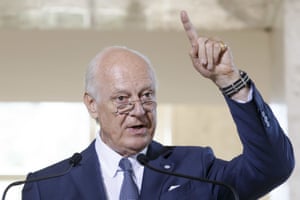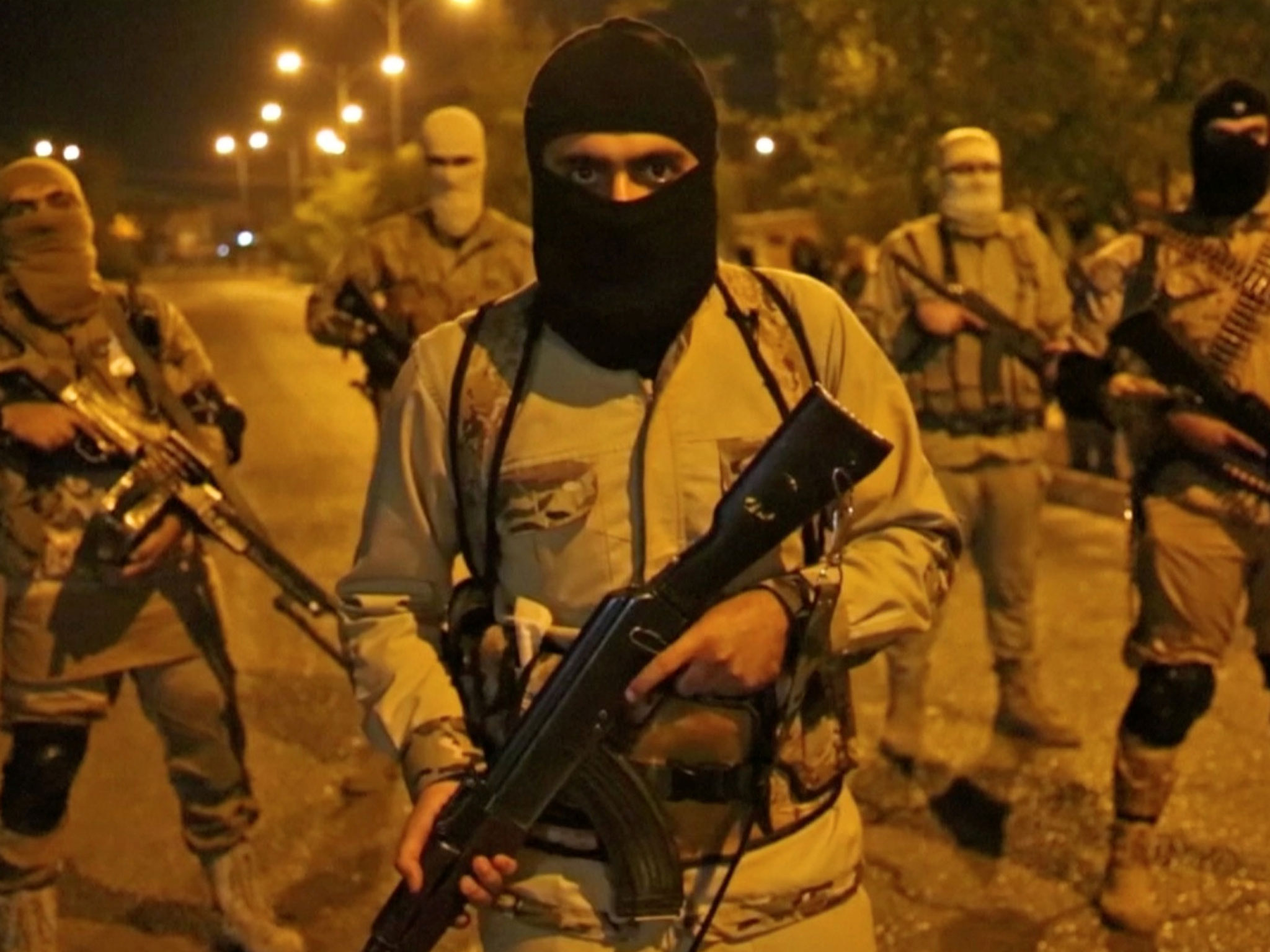Raqqa, the last Islamic State stronghold in Syria, will fall by the end of October, allowing credible democratic elections to be held within a year, according to the UN special envoy for the country.
Setting out a highly optimistic scenario for the end of the civil war, Staffan de Mistura said the country would face a “moment of truth” after the reclaiming of Raqqa. He urged President Bashar al-Assad to recognise he must make a political gesture if he didn’t wish to see a version of Isis return under a new name within months.
Speaking on BBC Radio 4’s Today programme, De Mistura argued that permanent peace would not be possible if the war ended in a messy but unilateral military victory for Assad. This, he said, would make the task of reconstruction and the return of refugees impossible.
There is a widespread view that the international community is beginning to wash its hands of Syria, and will allow Assad to win. But De Mistura said a military victory without a political settlement would lead to the revival of a Sunni military opposition “and the endless engagement would continue”.
He said he expected Isis to be defeated in its last Syrian strongholds of Raqqa and Deir ez-Zor by October.
“After Raqqa and Deir ez-Zor – and that is a matter of a few months – there will be a moment of truth. If the international community helps both the opposition and the government by pushing [them] to accept a real negotiation, then within a year it would be a possibility of having a truly credible election.”
He described Syria as devastated, but said “what we are seeing is the beginning of the end of the war”.
He said the international community needed to ask itself: “Do we want to reconstruct Syria and who will be paying for it? Only an inclusive, political, credible solution will allow that reconstruction and that will be through elections.”
In recent weeks many external supporters of the moderate opposition to Assad, such as Saudi Arabia and Jordan, have reduced their practical and political support in recognition of the military victories being chalked up by Assad and his supporters, principally Iran and Russia. They have been pressing the long-standing opposition groups to work with other groups closer to the Assad regime.
Isis territory has been significantly reduced in recent months, with Assad and his Iran-commanded Shia allies now controlling the west and central desert area, and the US–backed Kurds controlling the north-east of the country. Isis finds itself encircled in the east, while anti-Assad rebels are contained in northern Idlib province and a small part of the south.
De Mistura reiterated a message he gave to the UN security council this week when he urged Russia and the US to cooperate more closely in Syria.
“The one thing above all that can make a difference will be a common sense of purpose internationally, with clear priorities and sense of purpose,” he said.
Since the war began six years ago, the west has insisted that Assad’s departure as president must be a precondition for its end, but in recent years that position has shifted. It now effectively says Assad should be allowed to remain in power if he wins democratic elections.
Assad claims he has already held those elections, and is unlikely to feel pressure from Russia or Iran to stage further elections under UN auspices.

A new round of talks on a ceasefire are due to be held in Kazakhstan’s capital, Astana, on 14-15 September, largely led by Turkey, Iran and Russia. De Mistura wants to reconvene two weeks of political talks in Geneva in October, but says it is time for the high negotiations committee and the other opposition groups – known as the Moscow and Cairo groups – to develop a common platform. This would place Assad under greater pressure to negotiate, because he would be facing groups he recognises as legitimate.
Before those talks, the EU will host a meeting at the UN general assembly in New York on future stabilisation efforts and address the humanitarian needs in Syria.


